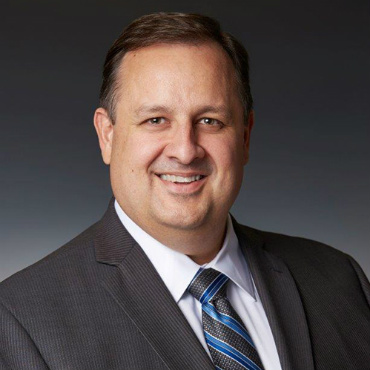Former OGE chief keeps up campaign for strong ethics
Just because Walter Shaub resigned from his post as chief of the Office of Government Ethics doesn’t mean he’s done pushing for a stronger ethics program.

“We are truly in an ethics crisis right now, and something’s got to be done about it," said Walter Shaub, senior director of ethics at the nonpartisan Campaign Legal Center.
Walter Shaub might have resigned from his post as director of the Office of Government Ethics, but that doesn’t mean he has stopped trying to bolster the federal ethics program.
Quite the opposite: From his new position as senior director of ethics at the nonpartisan Campaign Legal Center, he’s ramping up his mission to restore a strong ethics program in the executive branch.
Shaub, whose tenure at OGE spanned the administrations of George W. Bush and Barack Obama, has been outspoken about his concerns over the Trump administration’s ethics practices.
“What I can say unequivocally is that ethics really has no party,” Shaub said at a July 28 event hosted by the National Press Club in Washington. “Both major political parties have always been incredibly supportive of the government ethics program.”
By contrast, the Trump administration’s general attitude has been “an absolute shock to the system,” he said. “We are truly in an ethics crisis right now, and something’s got to be done about it.”
He added that “what we’re experiencing now could become the new norm -- all the more reason for it to be reported on and covered and challenged before it takes root. We have to protect even the appearance of the government’s integrity.”
In the past, the ethics program's power has come from the White House. The Trump administration, on the other hand, has highlighted the office’s limitations from the outset, Shaub said. A combative attitude from the White House “sets the tone from the top” regarding disclosure reports, potential conflicts of interest and “calling things leaks that are not at all leaks.”
Shaub has characterized President Donald Trump's plan to place his business holdings in a trust managed by his sons (rather than to divest them) as “worthless” and has raised concerns about the Trump Organization's lease of the Old Post Office for its hotel in Washington, D.C. However, Shaub has made it clear that a strong ethics program encompasses doing more than just what isn’t “strictly illegal.”
The rules and regulations outlined by the ethics program “set the absolute bare minimum for what you have to do in order to not be a criminal or not be a civil violator or not be a rule-breaker,” he said. “The departure from [ethical principles] is every bit a threat as any violation of a specific rule.”
Since taking office, Trump administration officials have been questioned about potential conflicts of interest, concerns about nepotism and violations of the Hatch Act, which prevents federal employees from using their official positions to engage in partisan activities or political coercion in the workplace.
Shaub said he believed he had reached the end of what he could do as a federal employee, and he detailed some changes he’d like to see made through congressional action.
He recommended that the Office of Government Ethics have "legislative and budgetary bypass authority, which means it can talk to Congress without having to get permission from the White House" or the Office of Management and Budget.
Shaub also said he’d like to eliminate some of the overly burdensome due-process procedures, adding that removing requirements for appointees to disclose income from publicly traded assets would free up resources for the small ethics office. Steps should be taken to ensure protection against presidents’ potential conflicts of interest, and the anti-nepotism statute should be clarified, he added.
“We’re in a hyper-polarized society right now,” he said, “but I think it’s important because we’ve always been free of presidential conflicts of interest” since the 1978 Ethics in Government Act was passed after the Watergate scandal.
Shaub said that since leaving government, he’s spoken with Reps. Trey Gowdy (R-S.C.) and Elijah Cummings (D-Md.), chairman and ranking member of the House Oversight and Government Reform Committee, respectively, and they both indicated an openness to further discussions.
He also said their oversight counterparts on the Senate Homeland Security and Governmental Affairs Committee are potentially taking an interest in strengthening the ethics program.





